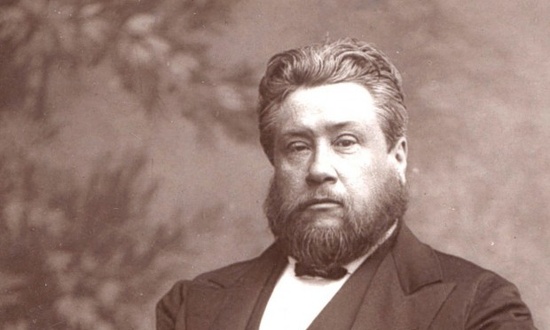Do you consider yourself an optimist or a pessimist? We have no guarantees about how our circumstances will turn out in this life. But when it comes to eternity, Christians have every reason for optimism—we know how the story will end!
The following is from Charles Spurgeon’s sermon “God Rejoicing in the New Creation,” given on July 5, 1891:
It is a present and a lasting joy: “Be glad and rejoice forever in that which I create” (Isaiah 65:18). Be now glad, and now rejoice: it is a present joy. Take a delightful interest in that which God is now creating in the spiritual realm. Be glad in anything that the Lord has created in you. Has He created in you so much of the new life as to have produced conviction, repentance, faith in Christ, hope in the promise, longing for holiness? Be glad in this even if you have other circumstances pressing upon you, and causing you to be heavy of heart.
Though you might be mourning because you are so sickly, yet be glad that you are born again. If somewhat distressed because you are so poor, yet be glad that you are a child of God and have a place in the new family of love. Let the old things go and grasp the new, the heavenly. The old creation—bear with it a little longer, for the time of your redemption from its bondage draws near. Find your joy where God would have you find it, namely, in that part of your nature which is new. Rejoice in the new principles, the new promises, the new covenant, and the blood of the new covenant which are yours—all of them. The Kingdom of God is within you; rejoice in it.
Find your joy in the new creation of God as you see it in others. The angels rejoice over one sinner who repents (Luke 15:10); surely you and I ought to do so! Try and do good, and bring others to Christ. And when a soul shows signs of turning to its God, let that be your joy.
“Be glad and rejoice forever.” As long as you live, there will be something in the new creation that shall be to you a fresh joy and delight. Heaven will only enlarge this same joy. Be glad forever, because God will ever be creating something fresh in which you may be glad.
It may be said of the joy we ought to feel that it is a joy God intended for us: “Behold, I create Jerusalem to be a joy, and her people to be a gladness” (Isaiah 65:18). He has made the new city, the new people, the new world to be a source of joy.
We ought to be glad and rejoice forever in that which God creates. Ours is a heritage of joy and peace. My dear brothers and sisters, if anybody in the world ought to be happy, we are the people.
How large our obligations! How boundless our privileges! How brilliant our hopes!
What should make us miserable? Sin? That is forgiven. Affliction? That is working our good. Inward corruptions? They are doomed to die. Satanic temptations? We wear an armor which they cannot penetrate. We have every reason for delight, and we have moreover this command for it: “Delight yourself in the Lord, and he will give you the desires of your heart” (Psalm 37:4). May God bring us into that blessed condition and keep us there!
God intends not only that we should have joy but also that we should spread it among others. He intends that wherever we go we should be light bearers and set other lamps shining.
Help the widow, comfort the fatherless, assist the poor, cheer up the disheartened, tell the glad news to the weary heart. In the Father’s hands, in Christ’s hands, in the Spirit’s hands, seek to break the prisoner’s fetters and to bring him out into the light of liberty. You, too, are anointed to proclaim liberty to the captives (Luke 4:18). May the God of infinite mercy help you and me so to do!
When you and I see sin subdued, do we not feel happy? Whenever the news comes to me that a man has been reclaimed from drunkenness or a woman has been saved from the streets, or when I hear of a hard-hearted sinner repenting, I rejoice in the Lord. Conversion days are our high holidays. But eventually there will be a still greater joy. We shall enter into Heaven, and there will be joy among the angels and joy in our hearts over God’s new creation work, which will proceed at a glorious rate. The day shall come when Christ shall reign from pole to pole. And what a joy that will be!
We shall indeed be glad in that which God creates, as the islands of the sea shall ring out His praise! Then Christ the Lord will come, and what joy and rejoicing there will be in that day when He has fully fashioned the New Earth and the new heavens.
Nothing prophesied should be dreaded by us. There is nothing foretold by a prophet or beheld in a vision that can alarm the Christian. He can stand serenely on the brink of the great eternity and say, “Come on! Let every event foretold become a fact! Pour out your vials, you angels! Fall, you star called Wormwood! Come, Gog and Magog, to the last great battle of Armageddon!” Nothing is to be feared by those who are one with Jesus. To us remains nothing but joy and rejoicing. For God has made His people a joy, and He has made them for rejoicing.
Charles Spurgeon wrote this sermon near the end of his life, at a time when he was seldom able to preach. In the printed version of the sermon, distributed around the world later that same week, this statement was added, helping readers appreciate the context in which Spurgeon spoke his powerful words about joy and rejoicing:
Mr. Spurgeon has been very seriously ill, but the prayers of the Lord’s people, at the Tabernacle and elsewhere, have been graciously answered on his behalf. Hearty thanksgiving should be rendered to the Lord for his partial recovery, joined with earnest supplication for his complete restoration to health and strength. Both Mr. and Mrs. Spurgeon are deeply grateful for the widespread sympathy that has been manifested during this season of severe trial.
Spurgeon’s partial recovery was brief. That he died only six months later makes all the more potent his words about the grounds for rejoicing.
Secular optimists are merely wishful thinkers. Discovering the present payoffs of optimism, they conduct seminars and write books on thinking positively. Sometimes they capitalize on optimism by becoming rich and famous. But then what happens? They eventually get old or sick, and when they die, if they haven’t trusted Christ, they go to Hell forever. Their optimism is an illusion, for it fails to take eternity into account.
The only proper foundation for optimism is the redemptive work of Jesus Christ. Any other foundation is sand, not rock. It will not bear the weight of eternity.
If we build our lives on the redemptive work of Christ, we should all be optimists. Why? Because even our most painful experience in life is but a temporary setback. Our pain and suffering may or may not be relieved in this life, but they will certainly be relieved in the next. That is Christ’s promise—no more death or pain. He will wipe away all our tears (Revelation 21:4). He took our sufferings on Himself so that one day He might remove all suffering from us, which is the biblical foundation for our optimism. No Christian should be a pessimist. We should be realists, focused on the reality that we serve a sovereign and gracious God. Because of the certainty of Christ’s atoning sacrifice and His promises, biblical realism is optimism.
We see the optimism in Spurgeon’s teaching on the biblical text about God having made us for joy and rejoicing. Knowing that it will be relieved doesn’t make suffering easy, but it does make suffering bearable. Hope allows us to have joy even in the midst of suffering. Paul says, “I rejoice in my sufferings” (Colossians 1:24), and James says, “Count it all joy, my brothers, when you meet trials of various kinds” (James 1:2). The apostles didn’t enjoy their suffering, but they rejoiced in the midst of it because they trusted God’s sovereign plan.
Our optimism is not that of the “health and wealth gospel,” which claims that God will spare us from suffering here and now. Peter says, “Rejoice insofar as you share Christ’s sufferings, that you may also rejoice and be glad when his glory is revealed” (1 Peter 4:13). Christ’s future glory, in which we will participate, is the reason for our present rejoicing in the midst of suffering.
Anticipating Heaven doesn’t eliminate pain, but it does lessen it and put it in perspective. Meditating on Heaven is a great pain reliever. Suffering and death are temporary conditions—they are but a gateway to eternal life of unending joy. The biblical doctrine of Heaven is about the future, but it has tremendous benefits here and now. If we grasp this truth, it will shift our center of gravity and radically change our perspective on life. This is what the Bible calls hope, a word used six times in Romans 8:20-25. In this passage, Paul says that all creation longs for our resurrection and the world’s coming redemption.
Don’t place your hope in favorable circumstances, which cannot and will not last. Place your hope in Christ and His promises. He will return. We will be resurrected to life on the New Earth. We will behold God’s face and joyfully serve Him forever and ever. We will, in fact, live happily ever after. That is not a fairy tale; it is the blood-bought promise of almighty God.
This article is excerpted from We Shall See God, in which Randy Alcorn has compiled profound spiritual insights on Heaven from the sermons of Charles Spurgeon, one of the greatest theologians of all time.
“This is my favorite devotional book. You can't go wrong with Charles Spurgeon and Randy Alcorn when reading about Heaven. Each chapter starts with a selection by Spurgeon regarding Heaven, and then Alcorn writes a few paragraphs reflecting on what Spurgeon has written. This makes a marvelous gift. Spread the joy!” —Reviewer
Photo by Warren Wong on Unsplash




